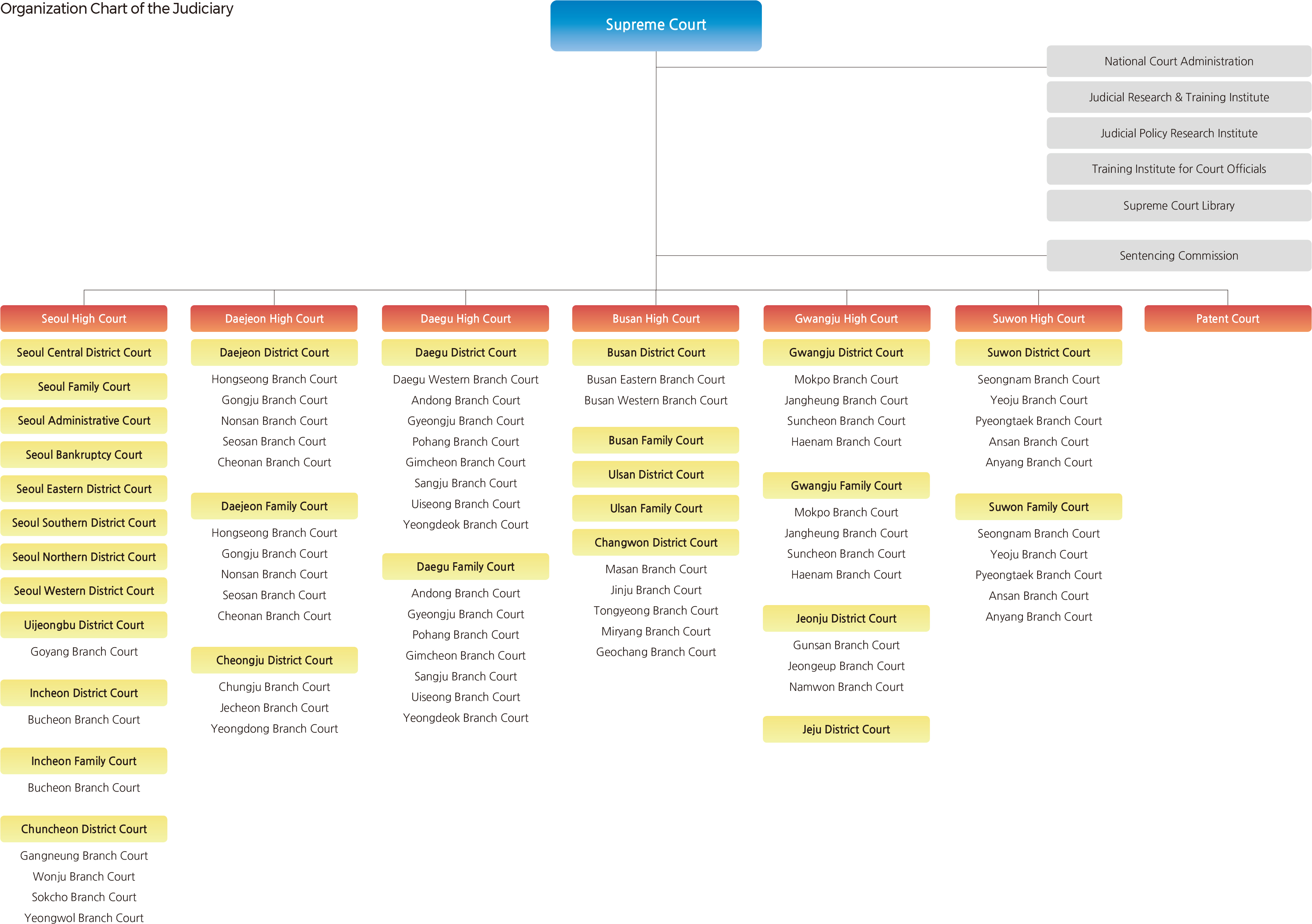English I 2019
The Courts are provided with the power to judge all legal disputes unless otherwise provided by the Constitution. The exceptions are found where the Constitution vests the power to judge some constitutional issues in the Constitutional Court and vests the power to examine the qualifications and/or to take disciplinary measures against members of the National Assembly. The courts shall also exercise power to administer and supervise extra-judicial matters such as immovable and movable property registration, corporation registration, family registration, deposit, and the duties of marshal.
There are seven types of courts in Korea: The Supreme Court, high court, district court, patent court, family court, administrative court, and bankruptcy court. The Korean judicial system adopts the basic three-tier system, which is composed of district courts, high courts, and the Supreme Court. Other courts exercise specialized functions, with the patent court positioned on the same level as the high courts, and the family court, the administrative court, and the bankruptcy court positioned on the same level as the district courts. District court and family court may establish branch courts, municipal courts, and registration offices, or any one or more of the three institutions if additional support is necessary to carry out their tasks. A branch court of both the district court and the family court may be established within the same court complex.
Case trials are presided over either by a single judge or a panel of three judges. In general, all hearings and rendering of judgments are open to the public. However, if there is any possibility that opening of hearings to the public could be subject to impairing national security, public peace, and order, or be contrary to good morals, the court may decide to close the hearings to the public. In either case, rendering of judgments must be open to the public under all circumstances. The court conducts its affairs in Korean. Interpretation can be arranged whenever deemed necessary. Except in military courts, adjudication, including hearings and rendering judgment, is presided over by a judge or a panel of judges. Since the enactment of the “Act on Citizen Participation in Criminal Trials” on January 1, 2008, the citizen participation in criminal trials, in which citizens directly participate as jurors, has been implemented for certain types of serious criminal cases at the request of the defendant.
South Korea offers multiple trial opportunities to prevent injustices through fairer trials. A party unsatisfied with the judgment rendered by a trial court is entitled to appeal the judgment. Appellate trials are heard in high courts in principle. However, the appellate cases tried by a single judge are heard by the appellate division established in the district courts. A party unsatisfied with the judgment of appellate jurisdiction may appeal the judgment to the Supreme Court, the final and highest tribunal. Since the Supreme Court deals with the question of law, the grounds of re-appeal to the Supreme Court are limited as prescribed in the civil procedure, the criminal procedure, and other procedures. |
